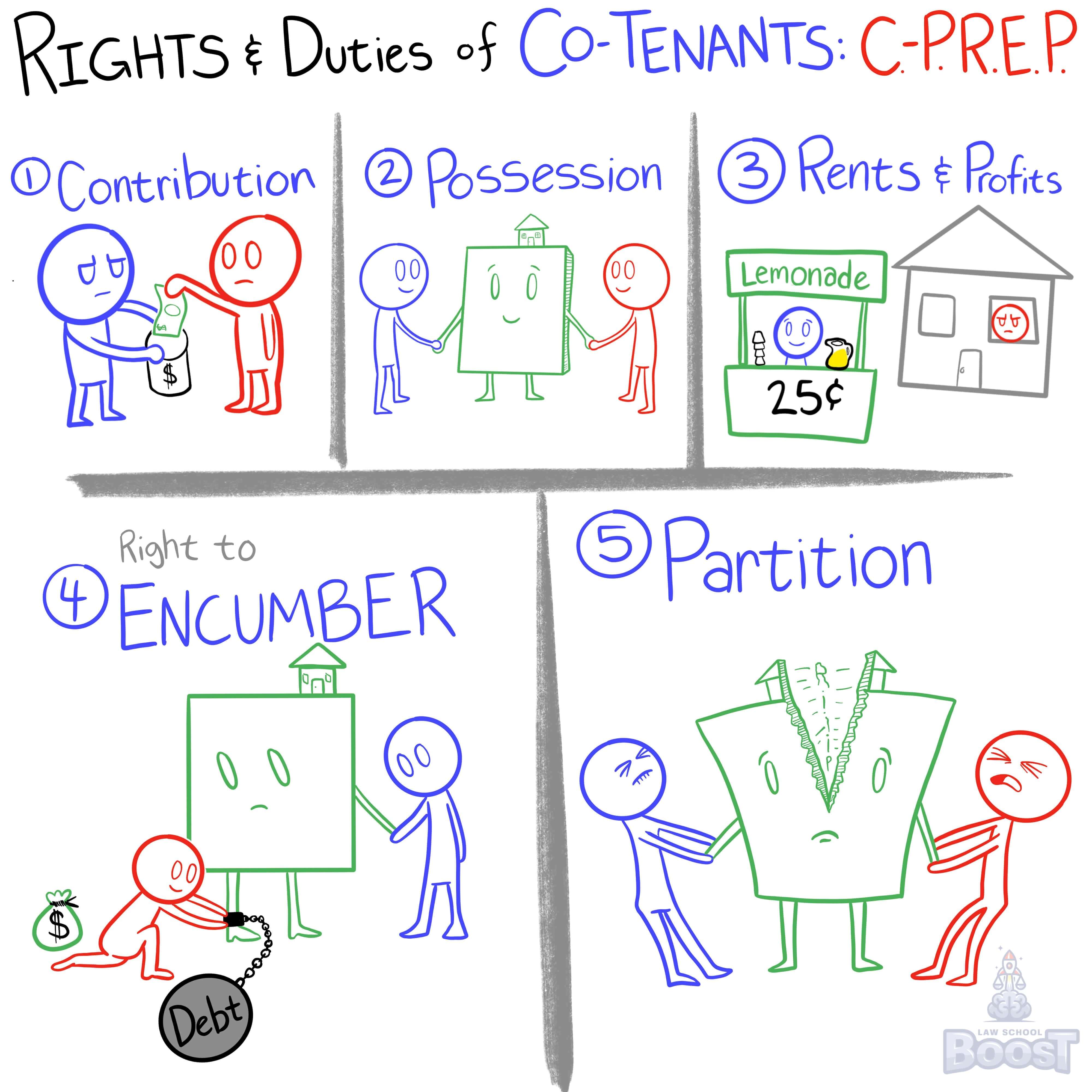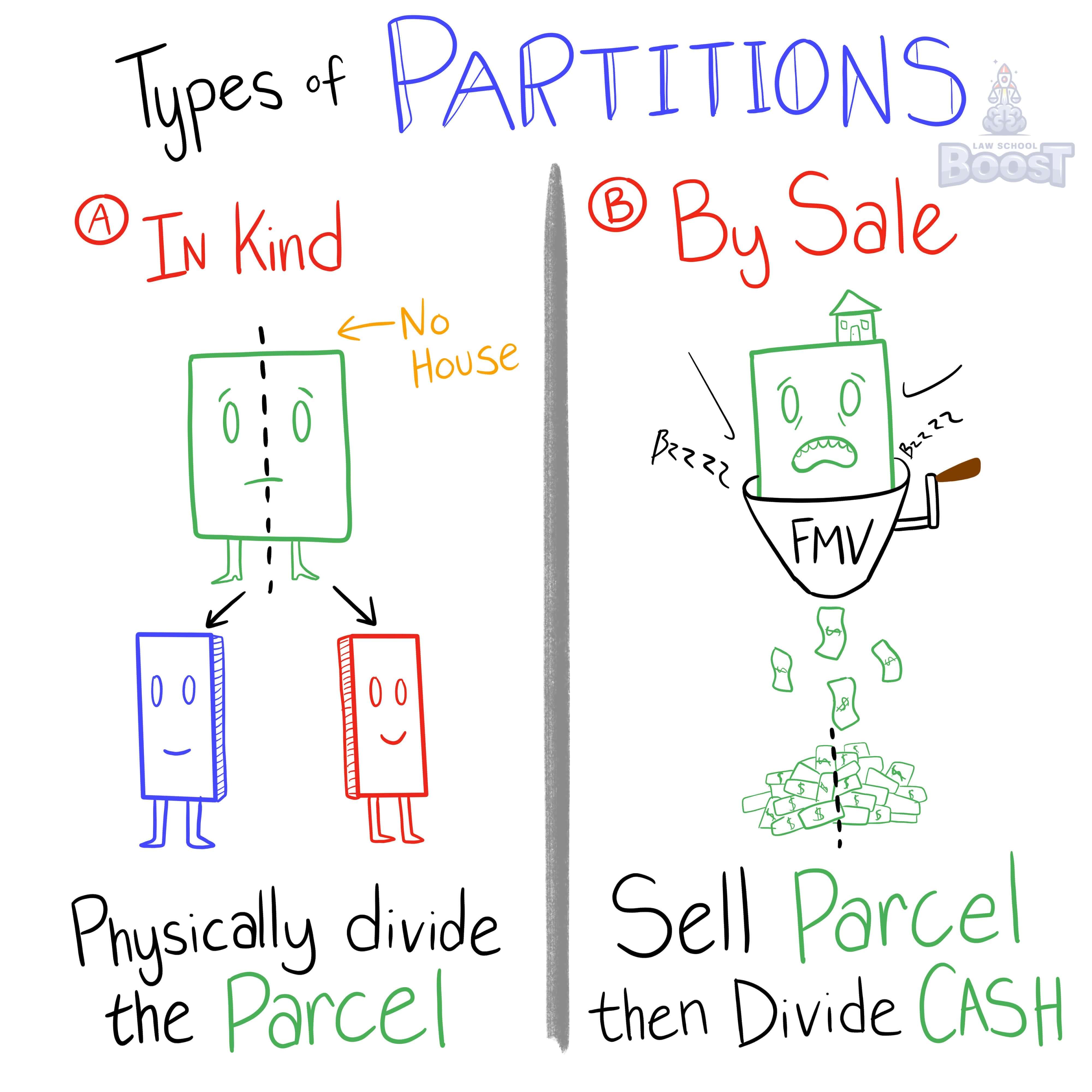😀
Real Property • Concurrent Estates
PROP#058
Legal Definition
It is possible for a joint tenant, or tenant in common, to encumber their own interest, but they cannot encumber the interest of any co-tenant.
Plain English Explanation
Interests in land have a lot of value, but different interests have different values. For example, if you own Blackacre in fee simple absolute, you can sell it for much more money than if you owned Blackacre as a joint tenant or a tenant in common. Why? Because there are more downsides to concurrent estates.
A joint tenant that gets a mortgage on their property can only get a mortgage on what they own, and what they own depends on circumstance. At the moment, a joint tenant owns potentially half of the property, if there is a severance. If the joint tenant outlives their co-tenants, then they potentially own 100% of the property. And, in contrast, if the joint tenant dies, they own nothing.
A tenant in common that gets a mortgage on their property can only get a mortgage on what share of the property they own. In other words, if there are 2 co-tenants, then each co-tenant can get a mortgage for 50% of the property.
A joint tenant that gets a mortgage on their property can only get a mortgage on what they own, and what they own depends on circumstance. At the moment, a joint tenant owns potentially half of the property, if there is a severance. If the joint tenant outlives their co-tenants, then they potentially own 100% of the property. And, in contrast, if the joint tenant dies, they own nothing.
A tenant in common that gets a mortgage on their property can only get a mortgage on what share of the property they own. In other words, if there are 2 co-tenants, then each co-tenant can get a mortgage for 50% of the property.
Hypothetical
Hypo 1: Amy and Bob are joint tenants with right of survivorship. Together, they own Blackacre. One day, Amy accidentally hits Paul with her car. Paul sues Amy for his injuries and obtains a judgment against Amy for $50,000. To make sure Paul gets his money, he puts a lien on Amy's interest in Blackacre. Result: Everything here is fine. Paul has ever right to put a lien on Amy's share in Blackacre.
Hypo 2: Same facts as Hypo 1, except after Paul puts a lien on Amy's interest in Blackacre, Amy dies. Result: The moment Amy died, her share was absorbed by Bob free and clear of any lien. Paul gets nothing.
Hypo 3: Same facts as Hypo 1, except after Paul puts a lien on Amy's interest in Blackacre, Bob dies. Result: Amy absorbs Bob's interest, and now Paul's lien applies to the entire property.
Hypo 2: Same facts as Hypo 1, except after Paul puts a lien on Amy's interest in Blackacre, Amy dies. Result: The moment Amy died, her share was absorbed by Bob free and clear of any lien. Paul gets nothing.
Hypo 3: Same facts as Hypo 1, except after Paul puts a lien on Amy's interest in Blackacre, Bob dies. Result: Amy absorbs Bob's interest, and now Paul's lien applies to the entire property.
Visual Aids




Related Concepts
In assessing the rights and duties of co-tenants, what are rents and profits?
In assessing the rights and duties of co-tenants, what is a judicial partition?
In assessing the rights and duties of co-tenants, what is contribution?
In assessing the rights and duties of co-tenants, what is possession?
What are the rights and duties of co-tenants?
What effect does a testamentary disposition have on a joint tenancy with right of survivorship?
What is a concurrent estate?
What is a tenancy by the entirety and how is it severed?
What is a tenancy in common?
What is required to establish a joint tenancy with right of survivorship?
What is the result of a joint tenancy that is severed?
Which type of transactions may not result in severance of a joint tenancy?


